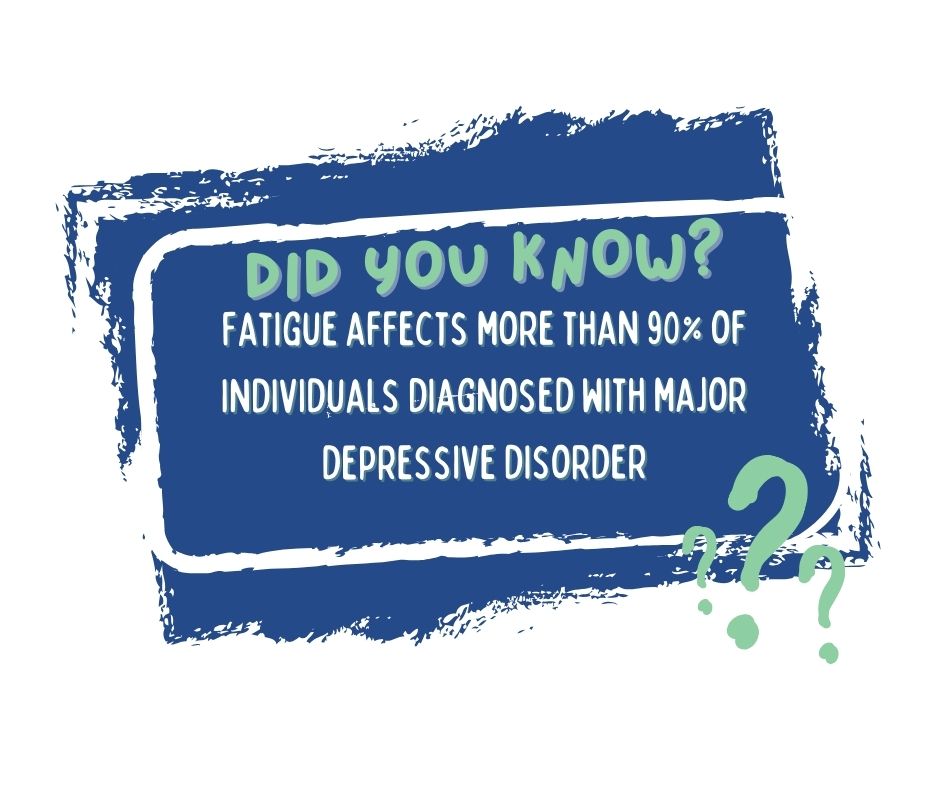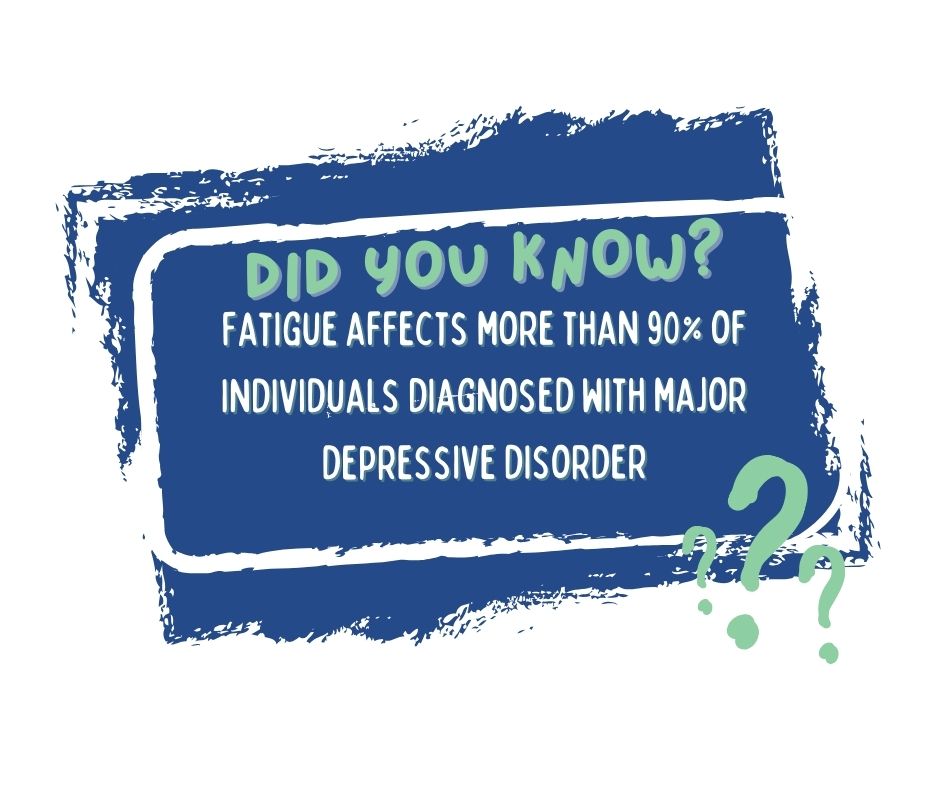Does Depression Make You Tired: Understanding Fatigue as a Symptom
Does depression make you tired? Feeling tired all the time can be frustrating. People often wonder if depression could be the reason behind this constant fatigue. Depression can indeed make you feel tired. It’s not just about feeling sad or down. This condition can drain your energy and leave you feeling exhausted more than usual.
The connection between depression and tiredness is complex. When someone is depressed, their sleep patterns may change. They might sleep too much or too little, both of which can lead to feeling tired during the day. Additionally, lack of motivation and interest in activities can contribute to this feeling of exhaustion.
Knowing that depression can make you tired is important. It helps in understanding what might be causing this tiredness and can guide someone toward seeking the right help. Recognizing the signs is the first step in addressing the issue and finding ways to feel better.
Understanding Depression
Depression is a mental health condition that affects millions of people. It often involves persistent sadness and lack of interest in activities. Many people have misunderstandings about what depression truly means.
Definition and Symptoms
Depression is more than occasional sadness. It is a serious condition characterized by deep feelings of sadness, hopelessness, and fatigue. Individuals with depression may also experience changes in appetite or sleep patterns. They often lose interest in activities they once found enjoyable.
Symptoms can include:
- Persistent sadness or low mood
- Loss of interest or pleasure in activities
- Changes in weight or appetite
- Sleep disturbances
- Fatigue or loss of energy
- Difficulty concentrating
Recognizing these symptoms is important for understanding and addressing the condition effectively. Professional help can provide valuable support for those affected.
Common Misconceptions
Many people think depression is simple sadness, but it is much more complex. It is not just about feeling down for a few days. Depression involves consistent and overwhelming feelings that don’t easily go away on their own.
Another misconception is that depression is a sign of weakness. In reality, it is a medical condition that affects brain chemistry and requires treatment. People often mistakenly believe that those with depression just need to “snap out of it.” Proper care and understanding from others can make a big difference in a person’s recovery journey.
Education about these misconceptions helps create a more supportive environment for those dealing with depression. It’s important to support those affected rather than dismissing their feelings.

Depression and Fatigue
Depression often leads to feelings of tiredness and exhaustion. The connection between these conditions can be explained by biological, psychological, and behavioral factors. Each of these factors contributes in unique ways. Understanding these links can help manage symptoms better.
Biological Links
Biological factors play a major role in depression-related fatigue. Depression can cause changes in brain chemicals like serotonin and dopamine. These neurotransmitters affect energy levels. People with depression might have lower levels of these chemicals. This makes them feel more tired.
Disrupted sleep patterns are another factor. Depression can lead to insomnia or oversleeping. Both conditions can result in fatigue. Sleep quality is vital for feeling rested. When it’s disturbed, fatigue can become chronic and hard to manage.
Psychological Explanations
Feelings of sadness and hopelessness are common in depression. These emotions drain mental energy and lead to fatigue. Negative thought patterns also contribute. When individuals constantly focus on problems, it makes them mentally exhausted.
Stress is another factor linking depression and fatigue. People with depression often feel overwhelmed. Their mind is in a constant state of tension. This ongoing stress depletes their energy, making simple tasks feel like a burden.
Behavioral Factors
Depression changes daily habits, leading to fatigue. People may become less active. Physical activity boosts energy levels. When activity decreases, fatigue increases. Poor diet is another contributing factor. Depression can lead to unhealthy eating habits. This can affect energy levels negatively.
Social withdrawal is a common behavior. Avoiding social interactions means missing out on experiences that boost mood and energy. Isolation can worsen feelings of fatigue. By staying aware of these behaviors, individuals can better manage their energy levels.
Diagnosing Depression-Related Fatigue: Does Depression Make You Tired?
Diagnosing fatigue linked to depression involves evaluating medical conditions and psychological factors. Careful assessment helps distinguish symptoms and create effective treatment plans.
Medical Assessment
Doctors often start by checking for medical causes of fatigue. This involves a physical exam and lab tests. They look for conditions like anemia, thyroid problems, or vitamin deficiencies. Ruling out these issues helps ensure the fatigue is related to depression.
Sometimes, medications can contribute to tiredness as a side effect. Reviewing a patient’s current medication list is important. If needed, adjustments in dosage or type of medication might be recommended.
Psychological Evaluation
A psychologist or psychiatrist usually conducts a psychological evaluation. They explore symptoms, behaviors, and emotions to see if they align with depression. This may involve interviews or structured questionnaires. Getting clear information is key.
Family history and personal stressors are also considered in this evaluation. Understanding these aspects can help identify triggers for depression-related fatigue. A proper diagnosis can guide treatment options like therapy or medication.
Managing and Treating Fatigue
Addressing fatigue caused by depression involves adopting lifestyle changes, exploring therapeutic approaches, and considering medication or supplements. Each method has its own benefits, and combining them can lead to better energy levels.
Lifestyle Changes
Regular Exercise: Engaging in physical activities can boost energy. Even short walks or gentle yoga can help.
Sleep Routine: Maintaining a consistent sleep schedule is crucial. Going to bed and waking up at the same time each day can improve rest quality.
Balanced Diet: Eating a variety of nutritious foods ensures steady energy supply. Incorporating fruits, vegetables, lean proteins, and whole grains can be beneficial.
Hydration: Staying hydrated supports physical and cognitive functions. It’s important to drink adequate water throughout the day.
Therapeutic Approaches
Cognitive Behavioral Therapy (CBT): CBT can help reframe negative thoughts that contribute to depression and fatigue. Working with a therapist can aid in developing coping strategies.
Mindfulness Practices: Techniques such as meditation or deep breathing can reduce stress and increase energy. Regular practice can lead to significant improvements.
Counseling Support: Talking to a counselor provides an opportunity to address underlying emotional issues linked to fatigue. Personalized therapy can effectively reduce symptoms.
Medication and Supplements
Antidepressants: Some antidepressants may help reduce fatigue in depression. Consulting a healthcare provider to determine the right medication is essential.
Stimulants: In some cases, low-dose stimulants are prescribed to boost energy. These are usually considered when other treatments aren’t sufficient.
Supplements: Vitamins like B12 and D, along with omega-3 fatty acids, might help. Consulting a doctor before taking supplements is crucial to avoid interactions.
Iron and Magnesium: If tests show deficiencies, these minerals can be supplemented to combat fatigue. Proper dosage as advised by a healthcare provider is important.
Frequently Asked Questions
Depression often impacts energy levels, making individuals feel tired and affecting sleep patterns. It can also blur the line between being sad or unmotivated and feeling genuinely fatigued.
What are the common signs of depression?
Common signs include ongoing sadness, lack of interest in activities, changes in appetite, and trouble sleeping. People might also face trouble concentrating or experience feelings of hopelessness.
Can depression lead to persistent fatigue?
Yes, depression can lead to fatigue. It affects the mind and body, often resulting in a lack of energy that doesn’t improve with rest.
How does depression affect daily energy levels and sleep patterns?
Depression can disrupt sleep, causing insomnia or excessive sleeping. This imbalance affects energy levels, leaving people feeling drained, even after sleeping.
What differentiates depression-related tiredness from general fatigue?
Depression-related tiredness often comes with emotional symptoms like sadness or anxiety. General fatigue usually links to physical causes or lifestyle factors like lack of sleep or exercise.
How can one differentiate between depression and simply feeling sad or unmotivated?
Depression lasts longer and significantly impacts daily life. It goes beyond occasional sadness or lack of motivation, affecting emotions, physical health, and daily function.
What steps should one take if they suspect their tiredness is due to depression?
First, consult a healthcare professional. They can provide a diagnosis and recommend treatment options such as therapy or medication. It’s important to seek support early.
You’re not alone, and help is always within reach. Contact us today at (774) 619-7750 and take control over your mental health.




